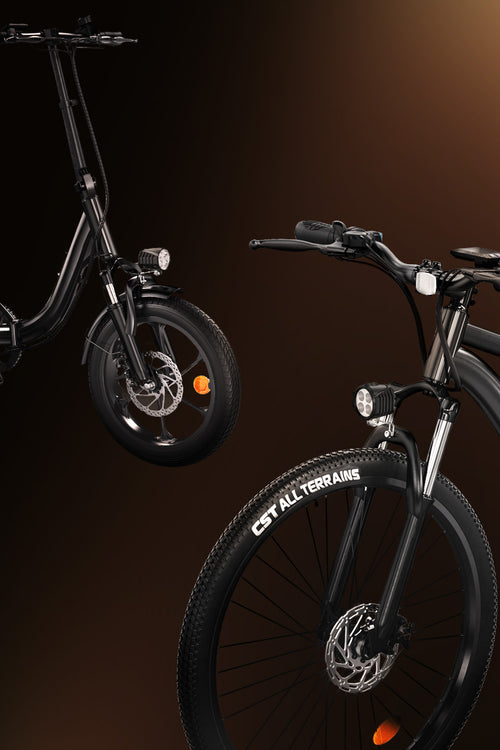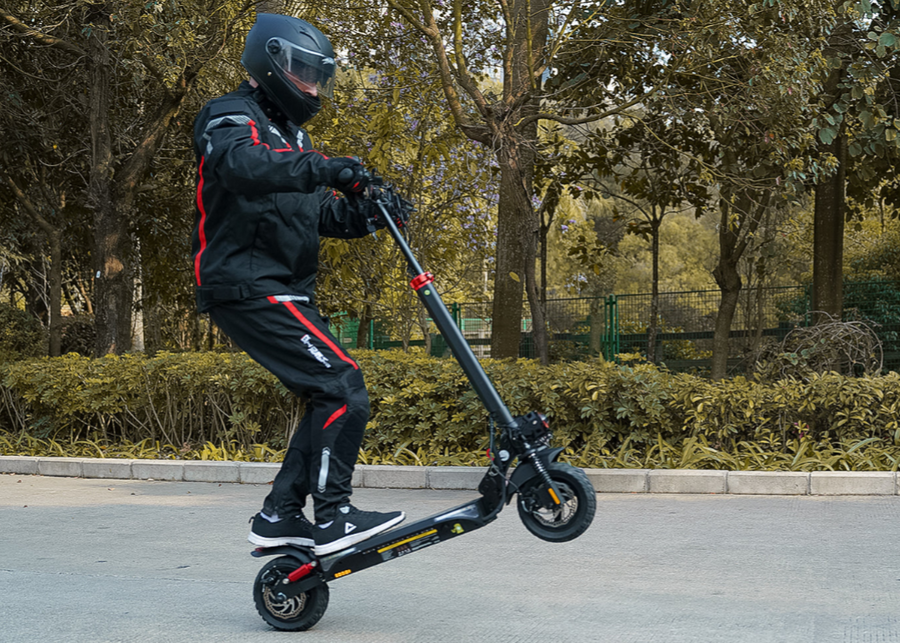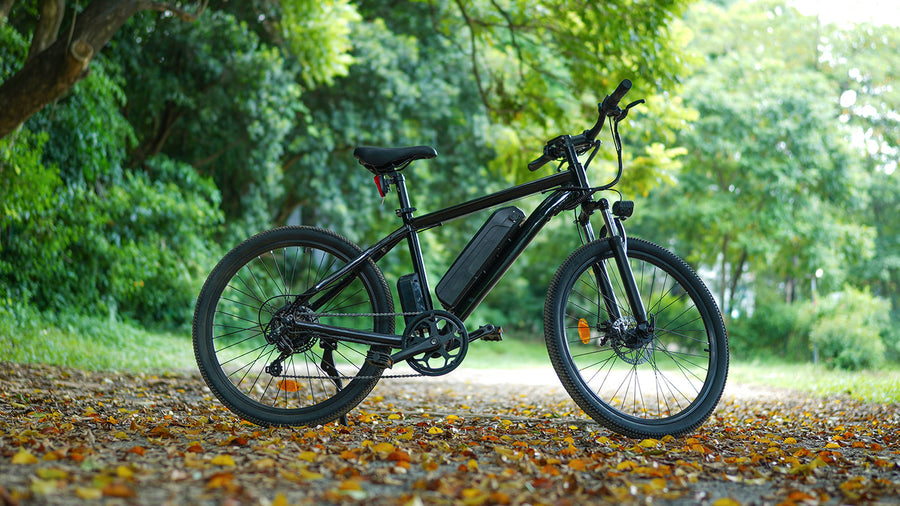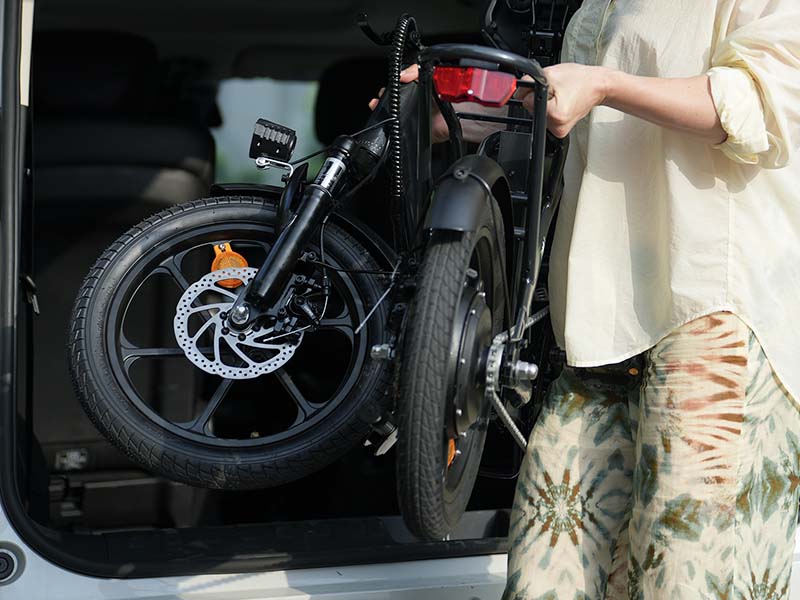
A Look into the Latest Innovations and Future Trends in E-Scooters
The global electric scooter market soared to US$ 24.67 billion in 2023, with forecasts indicating a staggering climb to US$ 50.78 billion by 2032. This trajectory reflects a compound annual growth rate of 8.35% between 2024 and 2032.
In the UK, the e-scooter market mirrors this global trend, witnessing a remarkable surge in popularity. This surge is propelled by many factors, including technological advancements, evolving consumer preferences, and a focus on sustainable transportation solutions. Let's delve into the latest innovations and future trends shaping the electric scooter landscape.
Latest Innovations in Electric Scooters
E-scooter manufacturers are pushing the boundaries of innovation to elevate performance, safety, and user experience. Among the most notable advancements is integrating smart features and connectivity options. Riders now can access real-time data, including speed, battery life, and navigation, via smartphone apps linked to their electric scooters.
For example, the iScooter i9Max Electric Scooter boasts smart App control, allowing riders to manage their scooter effortlessly with just a click. Through the Minirobot APP equipped with Bluetooth connection, users can lock/unlock, activate cruise control, toggle the headlight, and switch between modes seamlessly.
Furthermore, strides in battery technology have resulted in the development of more efficient and long-lasting power sources. Lithium-ion batteries with higher energy densities are increasingly prevalent, enabling e-scooters to achieve extended ranges on a single charge. Additionally, rapid charging capabilities empower riders to replenish their scooters in significantly less time than traditional charging methods.
Market Trends of Electric Scooters
The e-scooter industry in the UK is experiencing a remarkable period of rapid expansion, driven by a confluence of factors – increased investment, strategic partnerships with local authorities, and the evolution of regulatory frameworks. This dynamic landscape has paved the way for the widespread adoption of rental electric scooter schemes, which have gained significant traction across cities. These schemes provide commuters with a convenient and eco-friendly transportation option, seamlessly integrating into the urban mobility ecosystem.
Alongside the growth of rental schemes, electric scooter-sharing platforms have emerged as key players in the market, offering flexible and affordable rental services to urban dwellers. These platforms leverage cutting-edge technology to streamline the rental process and optimize fleet management, ensuring a seamless experience for users and contributing to the overall accessibility of this mode of transportation.

Regarding market trends, there is a growing demand for electric scooters designed specifically for urban commuting and last-mile connectivity. Manufacturers have responded to this demand by developing lightweight, foldable scooters with enhanced portability and convenience, catering to the needs of modern urban commuters. Additionally, there is a rising interest in scooters equipped with suspension systems and pneumatic tires, which provide improved ride comfort and stability on various terrain types, further expanding the versatility of these vehicles.
The rapid expansion of the e-scooter industry in the UK reflects a broader shift towards sustainable and efficient transportation solutions. As cities strive to address challenges such as traffic congestion and environmental concerns, integrating electric scooters into the urban mobility landscape presents a promising opportunity to revolutionize how people move within and around metropolitan areas. This dynamic growth trajectory is set to reshape the future of urban transportation, empowering commuters and local communities alike to embrace a more sustainable and connected future.
The Future of Electric Scooters
The future of e-scooters in the UK holds promising trends that reflect the evolving landscape of urban mobility and sustainability. Here are some anticipated trends:
- Integration with Public Transport: E-scooters are expected to be more integrated with existing public transportation networks. This could involve designated scooter parking areas at train stations and bus stops, allowing commuters to transition between different modes of transport.
- Expansion of Rental Schemes: Following successful trials in various cities, rental electric scooter schemes are likely to expand further across the UK. This expansion could see more areas offering convenient access to rental scooters, providing an alternative and eco-friendly option for short-distance travel.
- Improved Infrastructure: As e-scooters become more prevalent, there may be increased investment in infrastructure to support their use. This could include dedicated scooter lanes, charging stations, and improved road safety measures tailored to accommodate micro-mobility vehicles.
- Regulatory Framework: The regulatory framework for e-scooters is expected to evolve to better address safety concerns and streamline their use on public roads. This may involve implementing clearer rules regarding speed limits, helmet requirements, and designated riding areas.
- Focus on Sustainability: With increasing emphasis on sustainability, e-scooters are poised to play a vital role in reducing carbon emissions and promoting eco-friendly transportation alternatives. Manufacturers and rental operators may prioritize sustainability initiatives, such as using recycled materials and implementing eco-conscious practices throughout the scooter lifecycle.
Conclusion
The e-scooter market in the UK is undergoing rapid evolution, driven by technological innovation, market dynamics, and shifting consumer preferences. With continued advancements and favorable regulatory developments, electric scooters are poised to revolutionize urban transportation and pave the way for a cleaner, more efficient future.iScooter E Scooter Collections:
Electric Scooter | Kids Electric Scooter | Electric Scooter for Adults | Electric Scooter with Seat | Off-Road Electric Scooter | Foldable Electric Scooter | Girls Electric Scooter | 1000W Electric Scooter | 2000W Electric Scooter | Boys Electric Scooter | Dual Motor Electric Scooter | Big Electric Scooter | Electric Scooter with Suspension | Lightweight Electric Scooter | Commuter E-Scooters | 3 Wheel Electric Scooter
Show more ▼iScooter E Bike Collections:
Foldable Electric Bike | Affordable Cheap Electric Bike | Electric Bike for Adults | Electric Motor Bikes | Trek Electric Bike | Fastest Electric Bike | Electric Road Bike | Full Suspension Electric Mountain Bike | Giant Electric Bike | Womens Ladies Electric Bike | Mens Electric Bike | Electric Bike with Throttle | Electric Gravel Bike | Electric Mountain Bike UK | Fat Tyre Electric Bike | Electric Hybrid Bike | Electric Motorised Bike | Electric Push Bike | 1000W Electric Bike | Cool Electric Bikes | Electric Off Road Bike | Pedal Assist Electric Bike | Good Electric Bikes | Small Electric Bike | Trek Electric Mountain Bike | 2000W Electric Bike | Full Suspension Electric Bike | Mini Electric Bike | Road Legal Electric Bike | Step Through Electric Bike
Show more ▼👍 Buying Guide | 🚴♂️ Riding Guide
📋 Feature Guide | ❓ Common problem
Product category
Electric Scooter
Cheap Electric Scooters for Adults | Fastest Electric Scooter | Kids Electric Scooter | Mini Electric Scooter































































Article tags :
Leave us a message